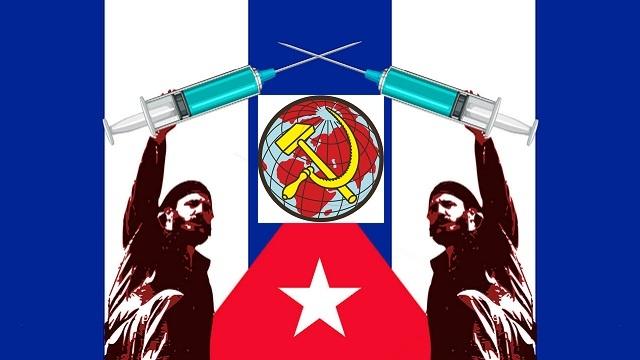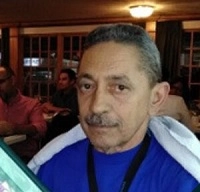 US Embargo on Cuba vs. Vaccines, Debunking Washington Post
US Embargo on Cuba vs. Vaccines, Debunking Washington Post
(Original www.havanatimes.org. Slightly modified version for this publication.)
The Washington Post recently gave us a disturbing recommendation: “Next pandemic, let Cuba vaccinate the world.” Forgiving the exaggerated headline, the lack of information Achal Prabhala and Vitor Ido – the two authors of the article originally published on June 1st -, have about the tragedy of the Cuban people is quite unfortunate.
The commentators say that “The story of how Cuba was systematically blocked in its quest to make its own highly effective vaccines widely available offers crucial lessons.”
Informing yourself before writing is crucial, because the US is the main source of net foreign currency captured by the Cuban State. In early 2020, CNN published the following fragment from a report provided by the Inter-American Dialogue, an institution affiliated with the World Bank.
Last year, Cubans received US $2.055 billion in direct money transfers as remittances:
“1,042,451 out of a total of nearly 4 million households in Cuba received remittances over the period (approximately 26%), an average of 2,210 USD per household. The US is the main source of these remittances, accounting for US $1.721 billion, or 83.72% of the total.”
Furthermore, the Cuban diaspora of over 2.5 million emigres, is using other personal channels to not only send money, but also goods, and they pay for one-off services such as the Internet.
Adding up all of these channels, The Havana Consulting Group, a renowned entity by the community of economists, has calculated the total contribution at US $6.5 billion in 2018.
Commercializing medical services is another important source of revenue. Cuba’s Office of Statistics and Information (ONEI) published that revenue from remittances were the equivalent of US $6.4 billion in 2018.
The Washington Post commentators are confused and misled when they quote Rolando Perez Rodriguez, the director of Science and Innovation at BioCubaFarma, who dared to say the following at the peak of the epidemic, in 2021: “We realized we wouldn’t have the money to buy vaccines for our people, so we had to make our own, and we had to do it in a very short time.”
What was the purpose of this money? Among other experts, economist Emilio Morales responded with the following headline, published by Diario de Cuba that same year:
"Fewer tourists and more hotel investments in Cuba: what's behind all this?" From his detailed study, based on official Cuban statistics, together with the opinions of other colleagues, we quote:
“At a time when the hotel occupancy rate in the last 15 months has been barely 14.7%, 45% of the investments have been dedicated to the construction of hotels, a fact that raises strong suspicions of money laundering and points to an imminent sale of the country to foreign companies in case the economy does not improve.”
From the information obtained, we summarize that:
Over the past three years, 57 hotels were completed, 25 of which were given a 5-star rating and 32 were given a 4-star rating.
Meanwhile, the Cuban health system’s efficiency in tackling the pandemic has been highly disputed. A figure that speaks for itself is the number of excess deaths per 100,000 inhabitants, which is calculated by subtracting the estimated number of deaths that would have happened if an unusual event like the pandemic hadn’t taken place, from the total number of deaths in a country.
The Economist has published a global list of “Excess deaths per 100,000 inhabitants,” during critical moments, especially from 2020-2022.
Mentioned by John Suarez, the director of the Center for a Free Cuba, which is based in Washington D.C., we learned that in the Americas: “Cuba (592 excess deaths per 100,000) was only beaten by Peru (602). By contrast, Costa Rica reported (166). The US which had a mediocre response to COVID reached (399 per 100,000), which was even better than Cuba’s result.”
The Washington Post continues to be misled when it claims:
“Cuba could have asked the WHO to certify its vaccines to make it easier for other countries to buy them with international aid. But it couldn’t afford to engage with the WHO after President Donald Trump reversed the mild sanctions reforms introduced by his predecessor and designated Cuba a state sponsor of terrorism.”
The relationships between Cuba’s Ministry of Public Health (MINSAP) and the WHO and its Pan-American branch (PAHO), are excellent. Certification of these vaccines still depends on Cuba meeting the requirements, step by step, outlined by scientific protocol in the area.
Lastly, a political overtone should be challenged, because we’re told that “The world has changed since 1962. The specter haunting it today is not communism but another global health emergency.”
This mention has nothing to do with the case at hand. Since 1959, Cuba has been living under a long period of repression, a failed state under the Cuban Communist Party’s dictatorial government. It isn’t a matter of the 1848 specter that haunted Marx and Engels’ Europe, it’s an inhumane reality that keeps a thousand-or-so people locked up because they shouted, “Patria y Vida” (Homeland and Life) on July 11th in 2021, the year of the pandemic and vaccines, which is still fresh in our memories.
 Author Vicente Morin Aguado. Cuban independent journalist, professor of history and philosophy, and contributor to the digital media Havana Times, Diario de Cuba, Cubanet, Palabra Nueva, and other media. He currently lives in the United States.
Author Vicente Morin Aguado. Cuban independent journalist, professor of history and philosophy, and contributor to the digital media Havana Times, Diario de Cuba, Cubanet, Palabra Nueva, and other media. He currently lives in the United States.

